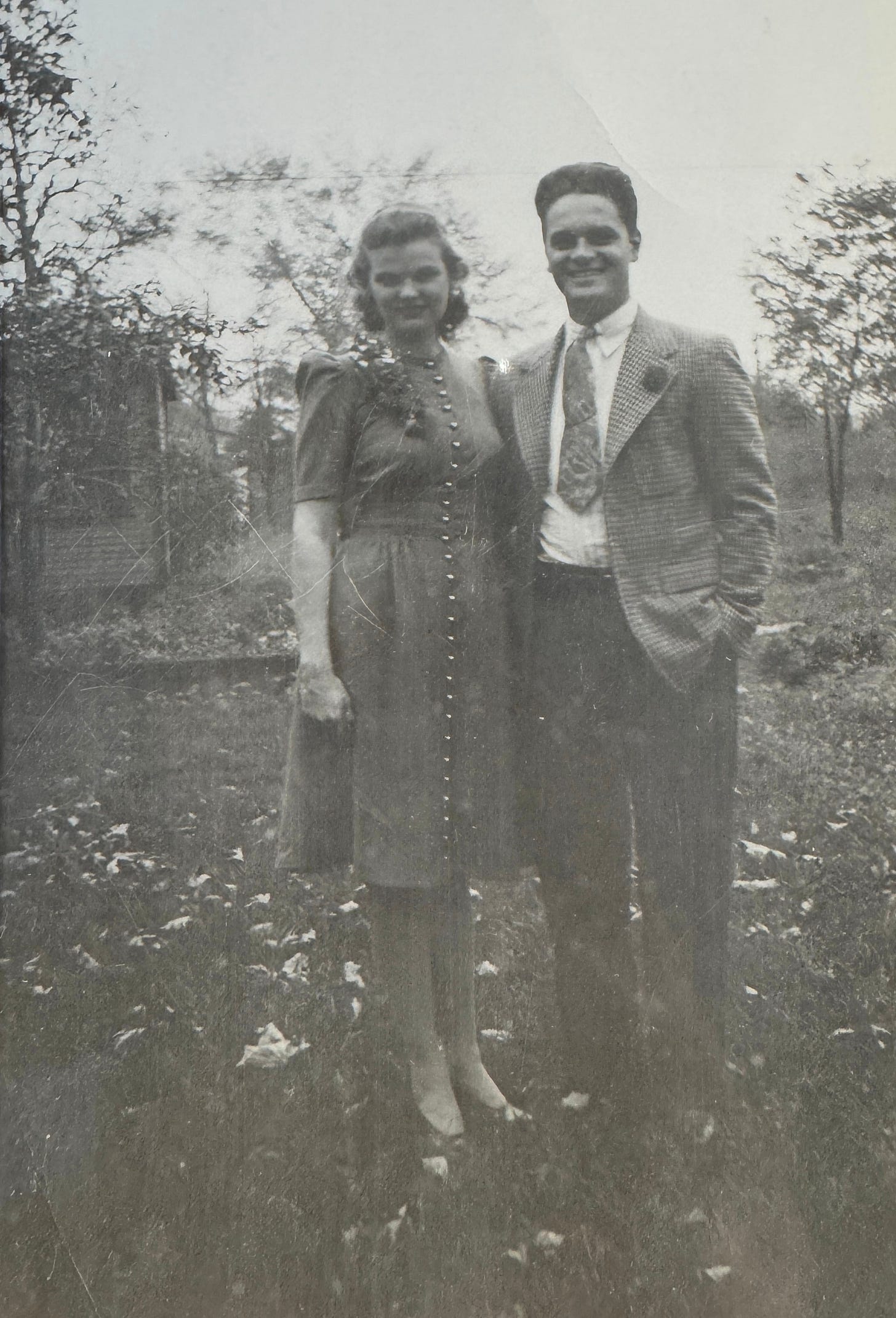Hi, friends—things are getting back on track a little slower than I’d hoped after my winter illness(es); February has just been one long January around here, which I suppose fits with the chaotic world at-large. So, here is one last (for now) creative writing piece from me before I corral this newsletter’s focus back to essays and interviews.
Years ago, Kris, my then-6-year-old, announced with a stern look that they would have nothing of this Valentine’s Day nonsense.
“If Cupid shoots an arrow at me, I'm not going to fall for that,” they said. “I will take it out of my system.”
Kris spoke of February 14 not as a day to celebrate love but as a time to avoid becoming a fallen tribute in the next Hunger Games. (Ironic, since they now compete on an archery team.)
When I was six, I wasn’t looking for Cupid yet, either; you could find me hiding under the dining room table when boys phoned our house—in large part because my mother, whose bookshelves were filled with Harlequin romance novels, began planning my love life before I’d mastered shoe-tying or diphthongs. Maybe the tabula rasa of her daughter’s heart was too tempting to ignore, like drawing your initials in freshly poured cement.
But a different kind of love story punctured me a few days after I turned 18. While visiting my divorced grandparents, who had been admitted on the same day to opposite wings of a Pennsylvania hospital, I fell for the bittersweet mystery of their broken relationship. I fell for the paradox that, for some, no love is as lasting as the kind that has gone.
My father, whose parents split when he was 13, grew up to become a committed romantic; he frequently removed his glasses to mop his eyes during sentimental movies. I suspect he came by the habit honestly. Eventually, so did I.
It’s why I wrote “Hemispheres,” the mini-memoir/narrative poem below, which was published in a slightly different version last year. It’s my attempt to lasso my grandparents’ lost connection—through the eyes of a budding, third-generation romantic.
Hemispheres
My handsome, sad-eyed grandfather, upright in his easy chair, a Notre Dame blanket spread across the round hemisphere of his belly, his double-wide overly warm, his second wife overly gruff.
When we visited once a year for half an hour, I bent to hug him with trepidation, all the gentleness behind his 5 o'clock shadow a mystery to me, his life a mystery to me, a mystery to himself.
“Have you been to see your mother yet?” he asked my father.
We had. My grandmother lived three miles and 30 years away, in a basement apartment with Spode figurines for roommates. Cherubic, twinkling, her voice high and childish, she was a starry recluse in bubblegum lipstick with a sweet tooth and lost toes.
When we visited once a year for half an hour, I bent to hug her with caution, concerned she might shatter like a globe of golden spun sugar, her crystals dissolving in the atmosphere.
We closed both their doors tightly when we left, careful not to let loose the what-ifs.
“Have you been to see your mother yet?” my grandfather asked, his hospital bed slumped under his heft, his second wife slumped over her bitter cafeteria coffee.
“Have you been to her room?”
We had. We had crossed the space between their broken parts, passed through the waiting area, sat in its galaxy-gray chairs, drank from its Styrofoam cups, grieved at the cooled equator of their hearts. We had seen her discarded oxygen tubes, the untwinkling of her unrequited light.
We had landed on their last moon.
“How is Eleanor?” my grandfather asked, his sad eyes begging us to tell fairy tales, to string the past across the sky like pearls. ♣




